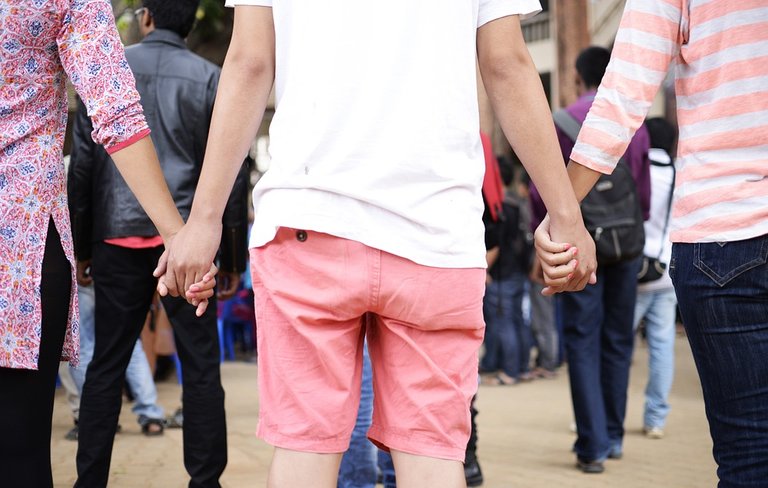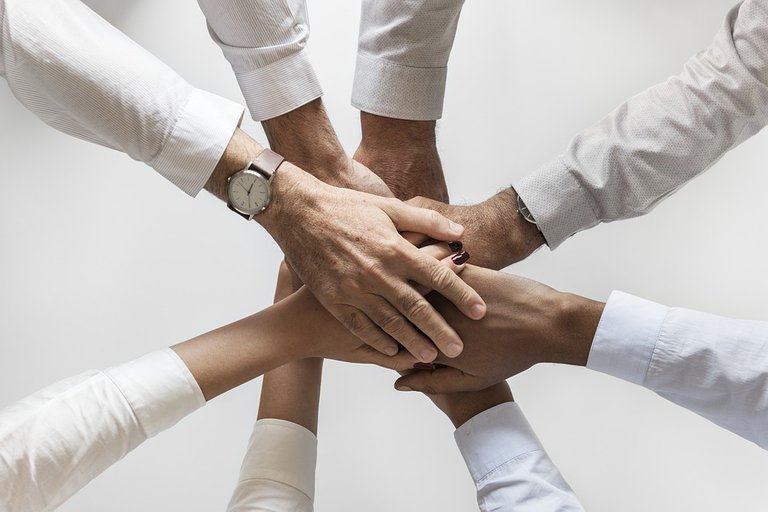It has been a while since I posted anything. I have recently resumed my studies in psychology and have written the following essay as an introduction back into one of my passions.
Evolutionary psychology seeks to understand how characteristics or behaviours developed and now exist by identifying how they have helped an organism (for the purpose of this essay: humans) adapt to its environment by increasing survival chances or reproductive success (Clegg, 2007). Evolutionary Psychologists determine whether behaviours aide survival by determining whether said behaviours are: genetically transmitted, confers a selection advantage, is universally found in a species and is efficient (Clegg, 2007).
The International Encyclopaedia of the Social Sciences defines psychological altruism as "a motivational state with the goal of increasing another's welfare” usually to the detriment of an individual’s own well-being. If altruism places the needs of the individual aside in order to benefit others, how can altruism be considered an adaptive behaviour? Let’s examine this question further.
Richard Dawkins coined the term ‘the selfish gene’ to describe the idea that the genes, within organisms well-adapted to survive and reproduce, will be passed on to future generations at the expense of those in less well-adapted organisms (Barrett et al in Clegg, 2007). Altruism, in the sense of aiding those who share our genes, can thus be seen as adaptive because it increases the chance that certain genetic traits will survive. Hamilton referred to this as “kin selection” (Clegg, 2007) and explained that if genes are similar, the motivation to help these genes survive would be intense. An example of the latter include human ancestors looking after infants of other parents, when infant mortality rates were high. In modern times, we routinely look after close relatives at a cost to ourselves.
People might act altruistically to non-related others with an expectation that the favour will be returned. This process is called reciprocal altruism (Clegg, 2007). When we share resources or provide protection it becomes an adaptive strategy that increases chances of survival for the group as a whole. In this sense, altruism is adaptive if it is reciprocal. Humans have developed a moral code that judges individuals and discourages selfish behaviour. The latter encourages behaviour that serves to aide to survival of the group. African groups embrace the notion of “Ubuntu” whereby the needs of the community outweigh that of the individual (and no action should be taken that harms another).
Social constructionists would argue that all behaviours result from social interactions. Behaviour, thus, is defined by (and limited to) one historical and social context that differs and depends on social groups (Phoenix, 2007). From this perspective, some might argue that there is no genetic component involved in altruistic behaviour. Interestingly, Fehr and Rockenbach (Clegg, 2007) found that reward-related areas of the brain are activated during tasks that require teamwork. Proponents of an evolutionary model suggest that the human brain has evolved in such a way that helping is a reward in and of itself. This enhances psychological well-being, which may act as an adaptive behaviour. This potentially answers why a seemingly selfless act has, in actuality, a very selfish motivator.
Altruism might be adaptive because it enhances attractiveness to potential sexual partners (and the passing on of genes through procreation). A generous person may be seen as a potentially good partner: resources, provider, and higher social status (Clegg, 2007). A study conducted by Farris et al (Clegg, 2007) found that people viewed their partners as more attractive after they were told that they acted generously. If this results from social learning, as opposed to genetic transmission, evolutionary psychologists would argue that it doesn’t negate the idea that it is an evolved behaviour, because advanced cognitive skills are evolved to aide adaptive behaviour. In this sense altruism can be seen as a by-product of other adaptations (Clegg, 2007).
Altruism may or may not be genetically transmitted. Kin selection explains how genetic dispositions can survive and continue. Reciprocal altruism, between groups where it is the norm, will benefit the whole and becomes an adaptive strategy. If altruism signals attractive traits and characteristics to mates, it is also an adaptive behaviour. The evolutionary model only examines genetics whilst the behavioural model looks at environmental factors. Considering the evidence provided, altruism can be seen as an adaptive behaviour, although open to criticism.
Sources:
Clegg, H. (2007). Evolutionary psychology. In Miell, D, Phoenix, A. & Thomas, K. (Eds.),
Mapping psychology (2nd ed., pp. 105-160), Milton Keynes, The Open University.
Phoenix, A. (2007).
Identities and diversities. In Miell, D, Phoenix, A. & Thomas, K. (Eds.),
Mapping psychology (2nd ed., pp. 43–95), Milton Keynes, The Open University.
All images used are taken from unSplash and are free to use- no referencing required. unplash.com



You are missing some image license information. Steemstem only curates posts which have images with the right copyright licenses. :)
I completely forgot- all my posts use images from Unsplash and are free to use. I've added that to my references now. It's been a while since I posted and it literally just slipped my mind. Hopefully the crew would be as kind as to review the curation of my post?
Thanks for bringing it to my attention!
don't forget to add the image links with the corresponding copyright license ;)
For example have a look at how it is done in this post -> https://steemit.com/steemstem/@procrastilearner/let-s-spoil-movies-using-science-gravity-2013
Thanks, took my a while to figure out the markdown but finally remembered it!
good job. We also greatly appreciate it if you give an attribution even if it is not required by the license :)
Congratulations @rionpistorius! You have completed the following achievement on Steemit and have been rewarded with new badge(s) :
Click on the badge to view your Board of Honor.
If you no longer want to receive notifications, reply to this comment with the word
STOPTo support your work, I also upvoted your post!
This post has been voted on by the steemstem curation team and voting trail.
There is more to SteemSTEM than just writing posts, check here for some more tips on being a community member. You can also join our discord here to get to know the rest of the community!
Hi @rionpistorius!
Your post was upvoted by utopian.io in cooperation with steemstem - supporting knowledge, innovation and technological advancement on the Steem Blockchain.
Contribute to Open Source with utopian.io
Learn how to contribute on our website and join the new open source economy.
Want to chat? Join the Utopian Community on Discord https://discord.gg/h52nFrV
Congratulations @rionpistorius! You have completed the following achievement on Steemit and have been rewarded with new badge(s) :
Click on the badge to view your Board of Honor.
If you no longer want to receive notifications, reply to this comment with the word
STOPCongratulations @rionpistorius! You have completed the following achievement on the Steem blockchain and have been rewarded with new badge(s) :
Click here to view your Board of Honor
If you no longer want to receive notifications, reply to this comment with the word
STOPDo not miss the last post from @steemitboard:
Congratulations @rionpistorius! You received a personal award!
Click here to view your Board
Do not miss the last post from @steemitboard:
Congratulations @rionpistorius! You received a personal award!
You can view your badges on your Steem Board and compare to others on the Steem Ranking
Vote for @Steemitboard as a witness to get one more award and increased upvotes!